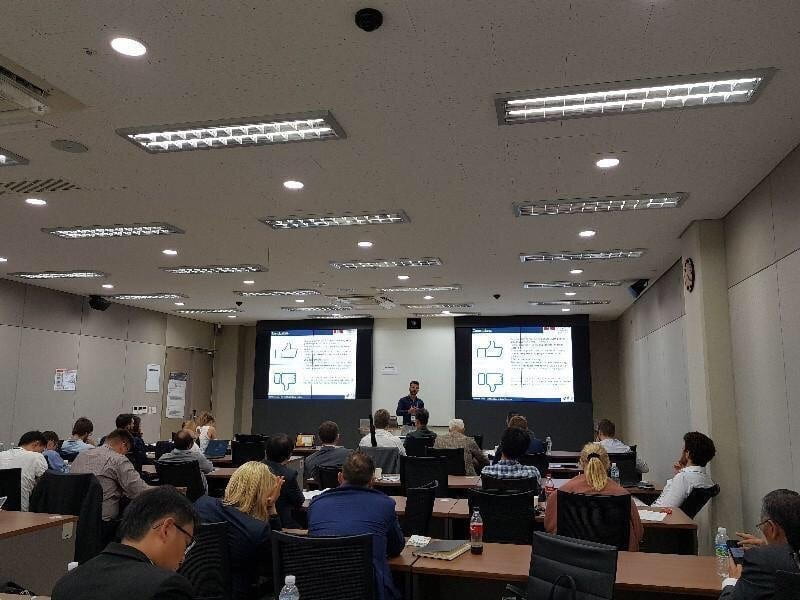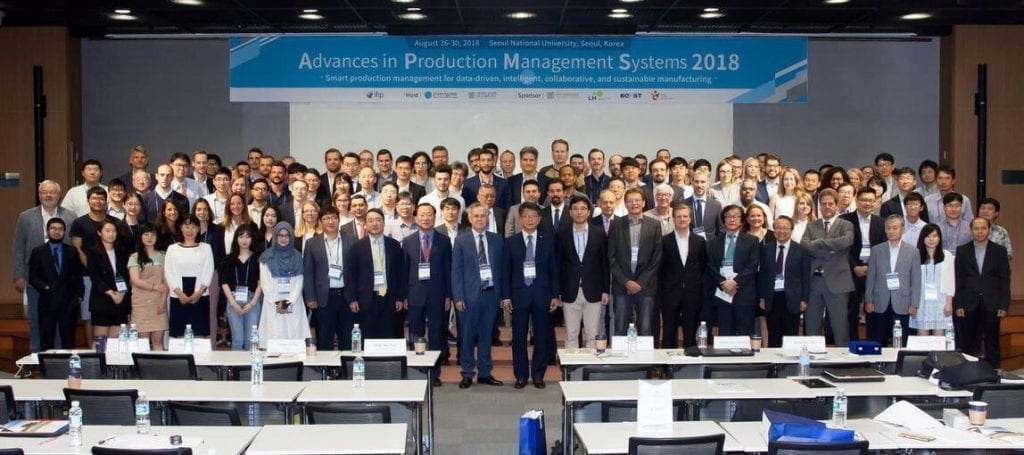Author Archives: Farhad Ameri
CHAIKMAT Project
November 2021. INFONEER will collaborate with the National School of Engineering of Tarbes (ENIT) in France in the context of a newly-funded project (CHAIKMAT). CHAIKMAT is a research project funded by the French National Agency of research ANR that aims to add flexibility and transparency to manufacturingthrough trustful automatic decision-making. To do so, we propose a human-centric Artificial Intelligence (AI) approach that investigates whether an available set of machines can perform a specific production processand then provides human experts with meaningful explanations of how the decision process is conducted.
Read more: https://chaikmat-anr.enit.fr
OntoCommons Workshop
I-ESA 2020
INTERNATIONAL CONFERENCE ON
INTEROPERABILITY FOR ENTERPRISE
SYSTEMS AND APPLICATIONS
“INTEROPERABILITY IN THE ERA OF ARTIFICIAL INTELLIGENCE”
November 17-19
https://iesa2020.enit.fr
Dr. Ameri will present the latest research findings associated with Supply chain WG activities (in the content of IOF – Industrial Ontology Foundry )
SEMANTiCS US
For 15 years, the SEMANTiCS conference has served as the leading European conference on Semantic Technologies and AI. The inaugural SEMANTiCS US will be held in Austin, TX. SEMANTiCS US will offer simultaneous tracks to engage any level of interest and experience. Throughout it all, the focus will be on delivering real world case studies and practical guidance, ensuring the conference will yield immediately actionable advice and learning for all attendees.
Dr. Ameri serves as the academic advisor for the conference.
APMS 2019
NIST NLP Workshop
NIST Standards Requirements Workshop for Natural Language Analysis (May 21st, 2019)
This event will bring personnel together to discuss the current and emerging capabilities and challenges with respect to collecting, storing, cleaning, parsing, and analyzing natural language documents for manufacturing operations. Dr. Ameri is attending the workshop as an invited speaker. He will presents INFONEER’s most recent research results related to using semantic knowledge graphs for supporting intelligent tools for automated diagnostics and prognostics in industrial maintenance application.
The workshop will feature a combination of short presentations (10-15 minutes) and brainstorming sessions with industry and academic experts focused on natural language documents in manufacturing. The day will be broken out into three distinct focus areas: 1) data collection and storage, 2) data cleaning and parsing, and 3) data analysis and visualization. Sessions are expected to feature speakers from a wide-range of industries and backgrounds. Speakers will provide short presentations on their experiences in natural language document analysis and the remainder of the time will focus on brainstorming sessions to discuss best practices, research and standards needs, and roadblocks in this area.
IOF Oslo Meeting
The Industrial Ontology Foundry (IOF), SIRIUS (Centre for Scalable Data Access – University of Oslo) and DNV GL organized the International Industrial Ontologies Workshops in Oslo, Norway on 4 – 7 February 2019.
The International Industrial Ontologies Workshops event on 4-5 February was targeted towards business professionals working with the implementation of industry ontologies, academics, and standards developers. The workshops during 6-7 February was targeted to developers and those using ontologies to drive value in their organization.
Dr. Ameri, as the chair of Supply Chain working group, updated the participants about the progresses made in this working group.
More information about the workshop can be found in the following link:
International Industrial Ontologies Workshops
Outstanding Master’s Thesis Award
Ramin Sabbagh, an INFONEER alumni, has won the 2018–2019 Graduate College Outstanding Master’s Thesis Award in the Mathematics, Physical Sciences, and Engineering. His thesis, “Semantic Text Analytics Technique for Classification of Manufacturing Suppliers“, was directed by Dr. Farhad Ameri, Associate Professor in the Department of Engineering Technology. Ramin is currently a Ph.D. student in the Mechanical Engineering Department at University of Texas at Austin.
This is the first time in the history of the Department of Engineering Technology that a graduate student in the Technology Management program has received such a prestigeous award.
The Outstanding Master’s Thesis award is in alignment with the Conference of Southern Graduate School’s (CSGS) regional competition. By winning this award, Ramin has earn the chance to win additional funding and to attend the organization’s annual conference.
APMS 2018 Presentation
The paper titled “Skill Modeling for Digital Factories” was presented in the Industry 4.0- Digital Twin session at APMS conference in Seoul, South Korea in August 2018. The presenter was Damiano Arena from EPFL, Switzerland, who was also the lead author on this paper.
Abstract:
In the past two decades, the use of ontologies has been proven to be an effective tool for enriching existing information systems in the digital data modelling domain and exploiting those assets for semantic interoperability. Despite the presence of many databases for industrial skills and professions, a formal representation, namely, an ontology, which meets the requirements of an existing tool for skill and capability analysis called CaMDiF is missing. In this research, the MSDL ontology used by the former tool in its initial version is extended by importing modules of two well-known ontologies (BFO and Agent Ontology) and by developing a new ontology for industry skills and profession based on an existing non-ontological resource (O*NET). As a result, an overview of the enriched data structure in provided along with some discussions on two use cases related to skill analysis enabled by the new CaMDiF’s modelling features


